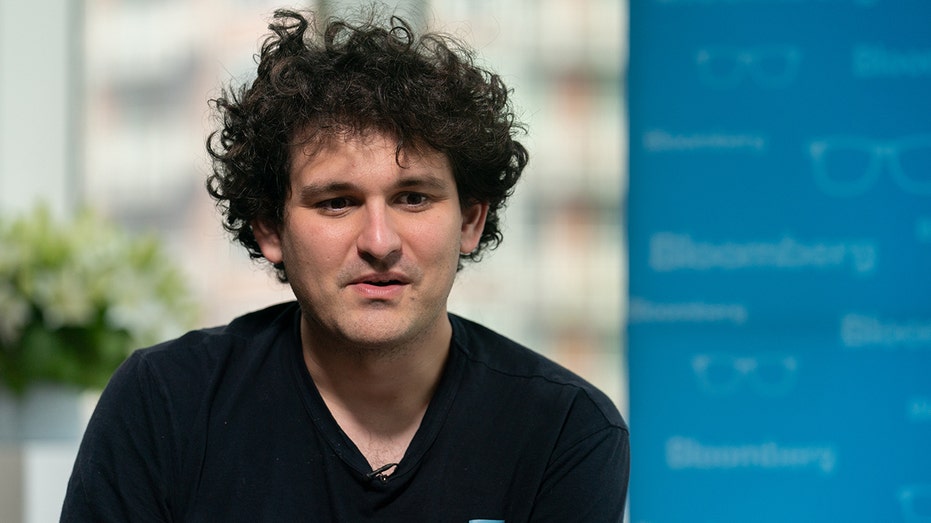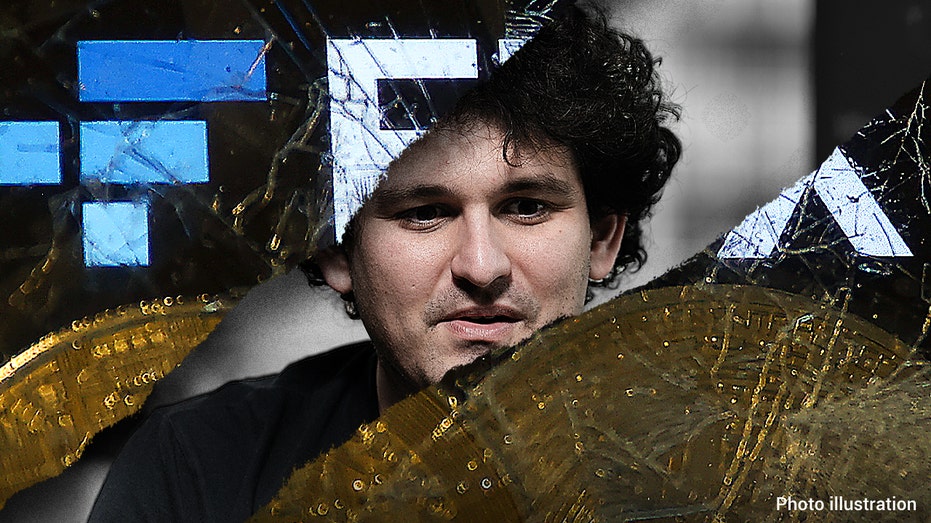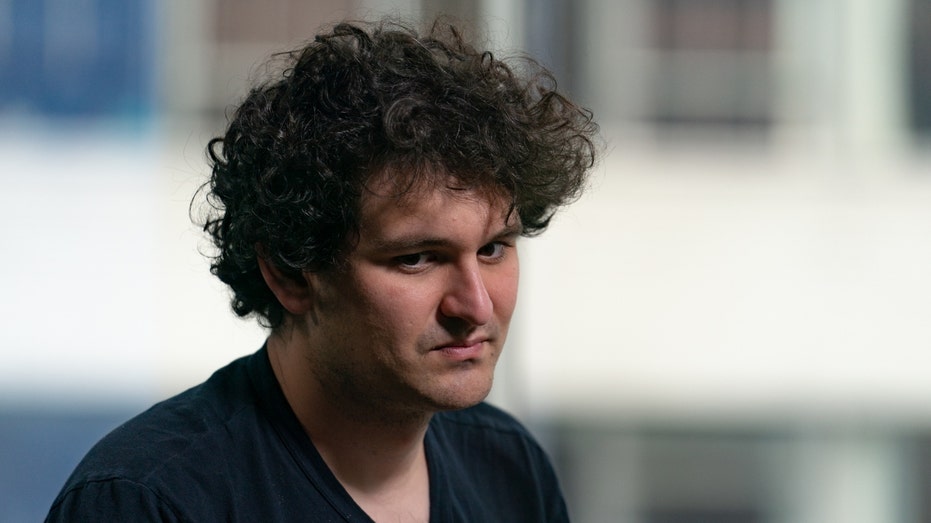FTX founder Sam Bankman-Fried took questions about company collapse: 'We messed up big'
Bankman-Fried denied criminal wrongdoing in the collapse of the crypto exchange
FTX founder Sam Bankman-Fried's 'PR blitz' blasted by critics
IDX Digital Assets chief investments officer Ben McMillan discusses Sam Bankman-Fried speaking at the New York Times conference amid FTX fallout.
11/30/22 – In his first live appearance since the spectacular collapse of FTX, founder Sam Bankman-Fried took questions at the DealBook Summit on Wednesday regarding the collapse of FTX, the now-bankrupt cryptocurrency exchange he founded, and the sequence of events that led to its implosion.
Bankman-Fried spoke remotely from the Bahamas, where FTX is headquartered, rather than appearing in person. He is reportedly under investigation by the Dept. of Justice and the Securities and Exchange Commission and may face extradition to the U.S. in the future. He is also expected to testify before congressional committees in the weeks ahead.
FORMER FBI AGENTS WEIGH IN ON FTX INVESTIGATION, SAM BANKMAN-FRIED'S POSSIBLE EXTRADITION
FTX was once valued at roughly $32 billion, but its implosion has sparked a broader contagion in crypto markets, as other firms that were intertwined with FTX and its sister company, hedge fund Alameda Research, suffer from the financial fallout. An estimated one million customers will be seeking to recover their assets from FTX as it and its affiliates continue through bankruptcy proceedings.
Bankman-Fried told host Andrew Ross Sorkin that as CEO, he had a duty to do right by employees, creditors, and other stakeholders but that he "was shocked by what happened this month" and that there were "things I wish I had done differently."
He denied intentional wrongdoing and said, "I did not ever try to commit fraud on anyone."

Sam Bankman-Fried, founder and former chief executive officer of FTX Cryptocurrency Derivatives Exchange, speaks during an interview on an episode of Bloomberg Wealth with David Rubenstein in New York, US, on Wednesday, Aug 17, 2022. Crypto exchange (Photographer: Jeenah Moon/Bloomberg via Getty Images / Getty Images)
Sorkin pressed Bankman-Fried about FTX's relationship with Alameda Research, as FTX reportedly loaned as much as $10 billion to Alameda, which was founded by Bankman-Fried and run by his ex-girlfriend Caroline Ellison, to shore up the hedge fund's finances. Bankman-Fried said, "I didn't knowingly commingle funds," but admitted oversight failures on his part.
INSIDE THE COLLAPSE OF CRYPTO EXCHANGE FTX: EVERYTHING YOU NEED TO KNOW
Bankman-Fried said that Alameda became too closely tied to FTX and denied that he was aware of the positions the hedge fund had taken that led to it becoming over-leveraged. He said that he kept his distance from the decision-making at Alameda because "I was nervous because of the conflict of interest of being too involved."
The Wall Street Journal previously reported that Ellison told Alameda staff FTX transferred customers' funds so that the hedge fund could meet its liabilities, and that she, Bankman-Fried, and other members of the firms' leadership were aware of the decision.

Bankman-Fried was asked about his efforts to buy other crypto companies and said, "I viewed it as important for the industry's health." The companies he acquired are now part of FTX's bankruptcy proceedings, while other FTX-linked crypto firms like BlockFi, which entered into a loan arrangement that gave FTX an option to buy it, have also filed for bankruptcy amid the contagion afflicting the crypto sector.
When asked about whether his lawyers think it's a good idea for him to be talking to the media this openly, Bankman-Fried responded "certainly not" but that, "I have a duty to talk and to explain what happened."
He added that he doesn't think he has any criminal liability for the collapse of FTX, but that's not his focus at the moment. "There's a time and a place for me to think about myself and my own future – I don't think this is it," he said.
"Look, I've had a bad month, but that's not what matters here," Bankman-Fried said while emphasizing that he wants to help make customers "fully whole." However, he didn't go into detail about how he would accomplish that at this stage.
Bankman-Fried said that FTX's corporate entity which handled U.S. trading should be solvent, and he's unsure why it isn't open for withdrawals. Both the FTX entities headquartered in the U.S. and the Bahamas are in bankruptcy proceedings.
Sorkin asked about what happened to $515 million in funding that was transferred from FTX following its bankruptcy filing. Bankman-Fried said he wasn't sure and cited several possibilities, including "improper access of assets." Reports about unauthorized transactions with as much as $1 billion worth of cryptocurrency going missing emerged shortly after FTX filed for bankruptcy.
SAM BANKMAN-FRIED SAYS HE HAS $100K LEFT IN BANK ACCOUNT AFTER FTX COLLAPSE
Bankman-Fried was asked about the charitable initiatives he undertook while leading FTX and whether they were part of a public relations campaign. He replied that some were genuine philanthropy but "there are things I felt like we needed to do for the business." Bankman-Fried and Ellison have advocated for the philosophy of "effective altruism" which involves making large sums of money to fund charitable causes.

Sam Bankman-Fried, founder and chief executive officer of FTX Cryptocurrency Derivatives Exchange, during an interview on an episode of Bloomberg Wealth with David Rubenstein in New York, US, on Wednesday, Aug 17, 2022. (Photographer: Jeenah Moon/Bloomberg via Getty Images / Getty Images)
The issue of FTX purchasing property in the Bahamas with corporate funds was raised by Sorkin, and Bankman-Fried explained that it was done so that the company could offer an "incentive" to get engineering employees to relocate from Silicon Valley to the Caribbean nation.
Returning to the issue of risk management, Bankman-Fried said FTX "completely failed" and explained, "There was no person in charge of positional risk on FTX."
New FTX CEO John Ray III, a corporate restructuring expert who handled the fallout from Enron's implosion, noted in bankruptcy filings that it was clear that control of the company was concentrated "in the hands of a very small group of inexperienced, unsophisticated and potentially compromised individuals" due to the "complete failure of corporate controls".
Bankman-Fried was asked whether venture capital firms that invested in FTX are at fault for its collapse to some degree. He responded, "I don't think they bear any responsibility," and that VC funds typically focus primarily on upsides.
GET FOX BUSINESS ON THE GO BY CLICKING HERE
After his video connection briefly cut out near the end of the interview, Bankman-Fried said he has $100,000 left in the bank and is down to one working credit card. He denied that he hid or improperly transferred any funds away from FTX.
Asked if he was truthful during the course of the hour-long interview, Bankman-Fried replied, "I was as truthful as I'm knowledgeable to be" and "I don't know of times when I lied."




















